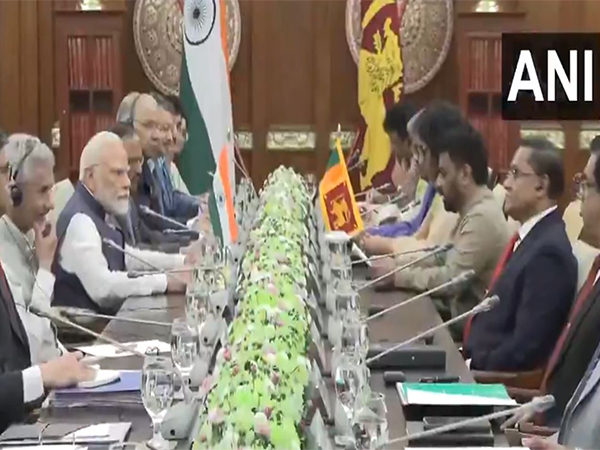Pakistan drifting away from US towards China: Defence analyst
Sep 07, 2020

Islamabad [Pakistan], September 7 : Amid the drastic change in US-Pakistan's relationship, China is the only hope for Pakistan for economic assistance, especially in the aftermath of the pandemic, said Ayesha Siddiqa, a defence analyst and South Asian politics scholar.
Speaking during an interview with The News International, Siddiqa said amid the fast-changing world dynamics wherein the coalition among the United States, India and Saudi Arabia gains strength, "Pakistan is drifting away from the US towards a potential alliance between China, Russia and perhaps Iran."
"The nature of US-Pakistan relations is changing drastically. Even though it has played a vital role in the US-Taliban negotiations, no one expects the continuation of American financial assistance to Pakistan. Islamabad joined the American alliance against the Taliban after 9/11," Siddiqa said.
"While the dominant narrative popularised by Islamabad was that it was forced into alignment, governments stuck to the narrow prism of extracting financial resources from the US, which also meant delivering reluctantly. The foreign policy debate in Pakistan is silent about our own responsibility in supporting the Taliban or keeping Osama bin Laden. Ultimately, the relationship collapsed at a point of overselling of our capabilities with limited capacity to deliver," she added.
The US-Pakistan relation has continued to be on a downhill as the latter has failed to take strong action against the terrorist groups emanating from its soil.
Due to the deteriorating ties, Siddiqa said, "China appears to be the only option. It may be Pakistan's only hope for economic assistance, especially in the aftermath of the pandemic... In the wake of the fast-changing world dynamics, as the coalition among the United States, India and Saudi Arabia gains strength, Pakistan is drifting away from the US towards a potential alliance between China, Russia and perhaps Iran."
She, however, noted that there are a lot of issues that still need to be worked out between these countries and Pakistan can benefit only "if it can do its homework and go beyond the idea of extracting limited benefits."
"There is an expectation that Pakistan and Iran will come close as a result of both being part of BRI, especially if Beijing and Tehran sign an agreement that is being talked about. Right now, we don't know if the agreement will get signed, but even if it does, I am not sure that we are domestically talking about the competition between Iran and Pakistan that will happen naturally. It was there even when both neighbours were once part of an American alignment," she said.
She further stated that Pakistan needs to improve its relations with its neighbours including India, Iran and Afghanistan.
While commenting on Pakistan's defence and foreign policy, Siddiqa said, "Pakistan's defence and foreign policy community lacks independent thinking and diversity of viewpoints. Over the years, alternative voices have been silenced. I was talking to a diplomat, who said that during her two postings to the country between 2016 and now, many people that she would talk to are no longer in the country. The security community that we have now comprising faculty at the known public sector universities and think tanks only preach to the choir by communicating dominant narratives of the establishment back to them through their reports. It is interesting to note that most of the think tanks are located on the Grand Trunk Road with little input from other parts of the country."


















